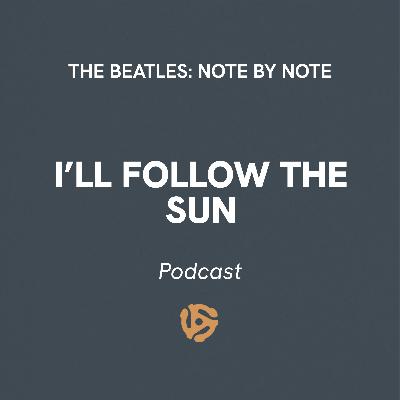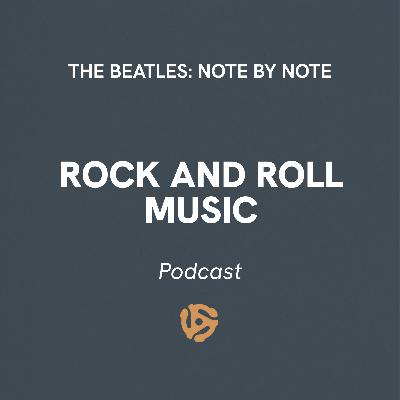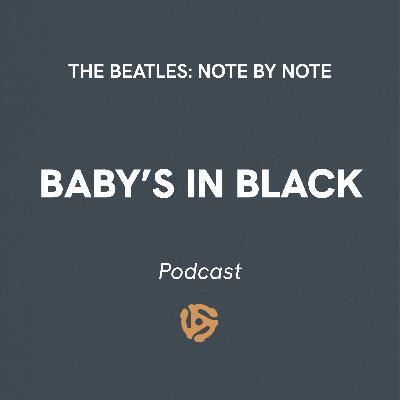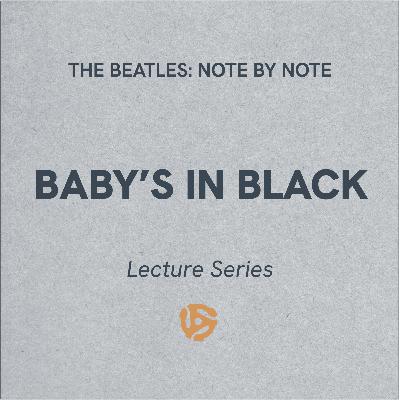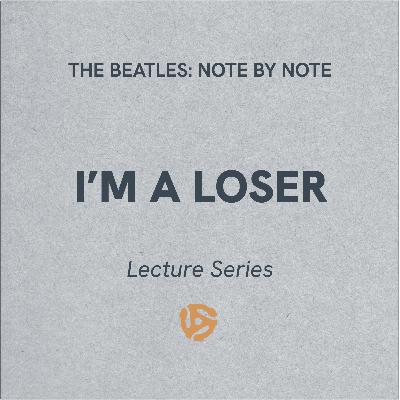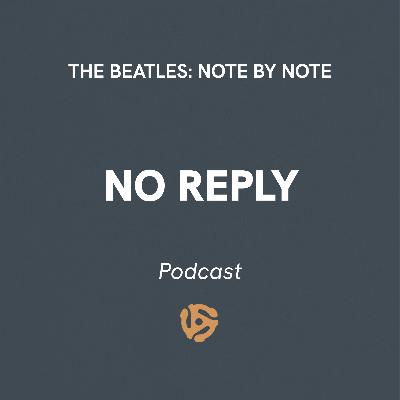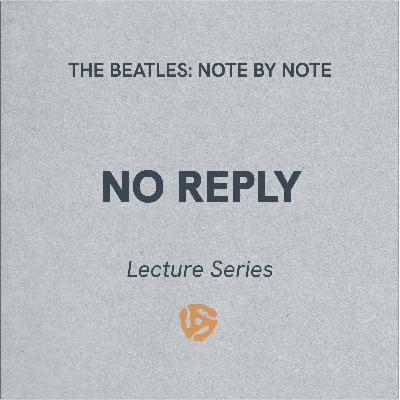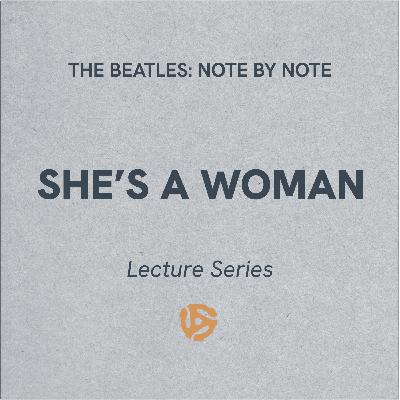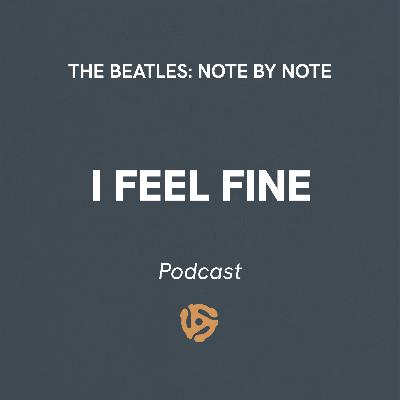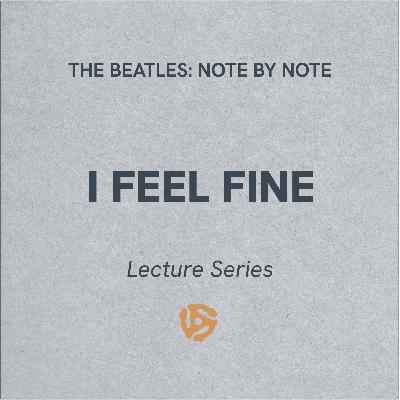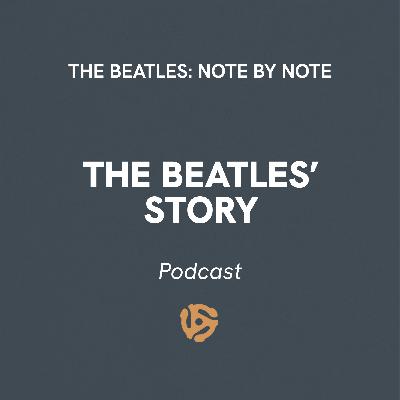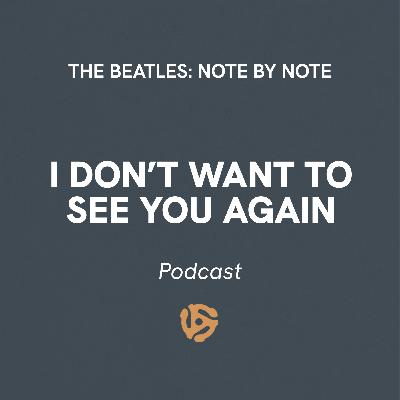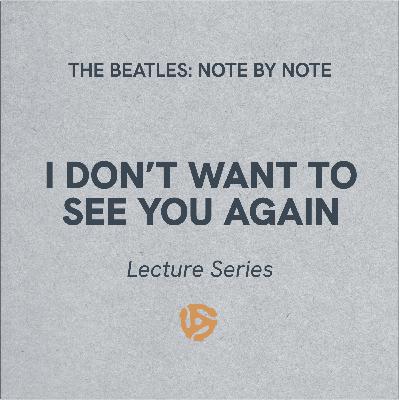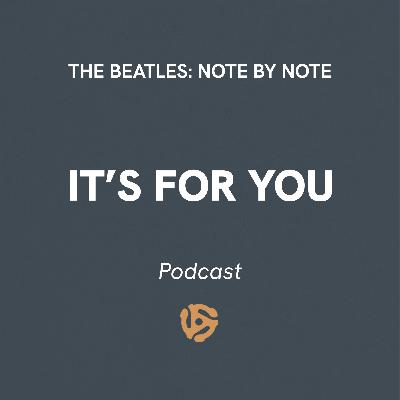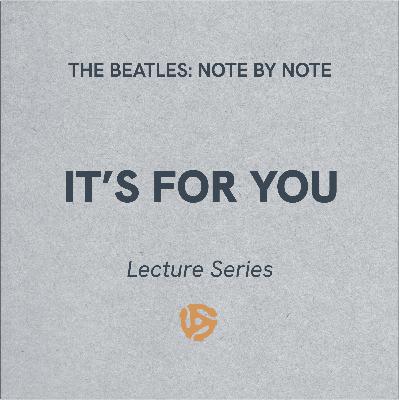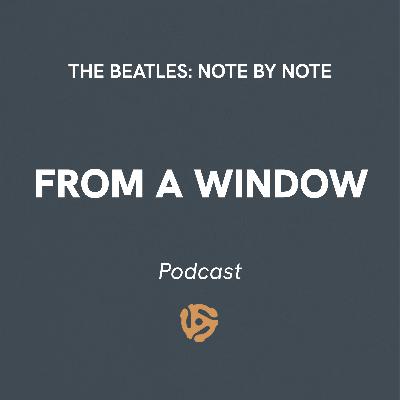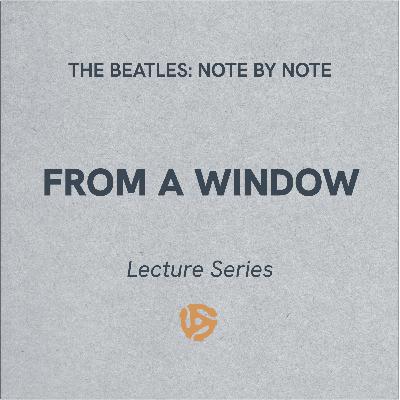Discover The Beatles: Note By Note
The Beatles: Note By Note

The Beatles: Note By Note
Author: Note By Note Series
Subscribed: 31Played: 871Subscribe
Share
© Note By Note Series
Description
A Beatles podcast that goes song-by-song through every Beatles release in chronological order. We focus on the music itself, breaking down what you’re hearing and why it works.
Website: https://www.notebynoteseries.com
Patreon: https://www.patreon.com/cw/NoteByNoteSeries
Instagram: https://www.instagram.com/notebynoteseries
Hosted on Acast. See acast.com/privacy for more information.
130 Episodes
Reverse
What happens when an underground Twin Cities hip hop veteran picks the softest song on Beatles for Sale as his favorite track on the album?On this episode we bring in our old friend Alexei, known as Crescent Moon from Kill the Vultures and Mixed Blood Majority, to talk about why I’ll Follow the Sun hits him so hard. We get into his path from early Minneapolis hip hop crews to folk duos busking Dylan style, and how that journey opened the door to the Beatles.We cover:- The wild origin of the song, written by Paul at 16 while sick at home- The stripped down “bedroom pop” feel of the Beatles’ recording, complete with Ringo drumming on his knees- Bad covers of the song- A cursed 7-Up slogan during the "Uncola" campaignWebsite: https://www.notebynoteseries.comPatreon: https://www.patreon.com/cw/NoteByNoteSeriesInstagram: https://www.instagram.com/notebynoteseries Hosted on Acast. See acast.com/privacy for more information.
What if Paul’s gentle breakup song is secretly in the wrong key?In this lecture Kenyon takes I’ll Follow The Sun apart piece by piece, starting with the lyrics and their roots in an earlier Paul song, I’ll Be On My Way. We look at rain and sun as more than mood words. Rain can stand in for Liverpool and Britain, the sun for a brighter, maybe more exotic future, and the relationship sits right in the middle of that tension.Website: https://www.notebynoteseries.comPatreon: https://www.patreon.com/cw/NoteByNoteSeriesInstagram: https://www.instagram.com/notebynoteseriesWebsite: https://www.notebynoteseries.comPatreon: https://www.patreon.com/cw/NoteByNoteSeriesInstagram: https://www.instagram.com/notebynoteseries Hosted on Acast. See acast.com/privacy for more information.
In this episode of our Beatles podcast, we invite music critic and musician Giggens into the room to help us pick apart why this cover still hits like a shot of adrenaline. Let's take Rock and Roll Music and make it Beatles. We kick off with our usual on-mic chaos, then settle into the fun stuff: how we frame a song, what we listen for, and why John’s full-throttle vocal changes the game. Along the way we test the line between rock and roll and rock, talk pacing and sequencing on Beatles For Sale, read period liner notes out loud, and let Giggens weigh the musician brain against the critic brain. It is playful, fast, and very us. No spoiler-y deep dives, just the energy of a barn burner, a few ridiculous jokes, and an honest, punchy verdict at the end. If you like hearing passionate people argue about what makes a performance work, this one’s for you.Giggens: https://www.youtube.com/@GiggensWebsite: https://www.notebynoteseries.comPatreon: https://www.patreon.com/cw/NoteByNoteSeriesInstagram: https://www.instagram.com/notebynoteseries Hosted on Acast. See acast.com/privacy for more information.
This week on our Beatles podcast, we cover “Baby’s in Black”, not just a normal track on Beatles for Sale. It’s a doorway. Peter and Kenyon step through it and bring listeners along, mixing storytime with close listening and a lot of spirited back-and-forth. They trace a line from early Hamburg nights and an art-school circle to a song that feels old and new at the same time, then dig into why that mood fits this moment in the album. You’ll hear them puzzle out who carries the tune when two voices move as one, why this waltz feel hits differently, and how a few studio choices shaped what we now hear. If you like episodes where the conversation changes how the song lands, this one’s for you. Come for the harmonies, stay for the way longing and loss thread through the whole thing.Website: https://www.notebynoteseries.comPatreon: https://www.patreon.com/cw/NoteByNoteSeriesInstagram: https://www.instagram.com/notebynoteseries Hosted on Acast. See acast.com/privacy for more information.
In this session on “Baby’s in Black,” Kenyon treats the song as both language and architecture. The lesson begins with the title and first line, tracing how color words shape meaning and mood, then tests competing readings of grief, longing, and the implied triangle in the lyric. From there, we map the form into three functional sections, compare the blended vocal lines to ask where the “main” melody actually lives, and situate the waltz-like feel within compound meter. Harmony is handled as design rather than trivia, highlighting the familiar movement of the outer sections and the brief middle turn that refreshes the tonal space without leaving home. We also profile the arrangement choice that makes this recording singular: the bent-and-slid guitar figures that frame the track and color the solo. Throughout, the aim is precision: how phrasing, interval choice, and form combine to make a small song carry big emotional weight.Website: https://www.notebynoteseries.comPatreon: https://www.patreon.com/cw/NoteByNoteSeriesInstagram: https://www.instagram.com/notebynoteseries Hosted on Acast. See acast.com/privacy for more information.
This week on our Beatles podcast, we dive into “I’m a Loser” with Kenyon, Peter, and special guest Abby Devoe. The trio explores how the song feels and what it does. They frame “I’m a Loser” as a bold statement in peak Beatlemania, talk about how vulnerability reads as power, and trace the way the track announces a new voice in John’s writing. Abby brings her fashion and culture lens, then jumps into a playful “Beatles à la mode” tour of early looks, tailoring, and boots, connecting style to sound and attitude. You’ll hear how the hosts set the table with just enough songwriting and recording context to ground the chat, then pivot to impressions, performance choices, and why that opening hits like a headline. Come for the laughs, stay for the perspective shift.Abigail Devoe: https://www.youtube.com/@abigaildevoeWebsite: https://www.notebynoteseries.comPatreon: https://www.patreon.com/cw/NoteByNoteSeriesInstagram: https://www.instagram.com/notebynoteseries Hosted on Acast. See acast.com/privacy for more information.
What happens when a Beatles song stares straight at the word “loser”? In this lecture, Kenyon takes the title seriously and follows the lyric to ask whether Lennon means simple heartbreak or a jab at his own image. Kenyon reads the verses closely, noting the high-school-diary metaphors, the mask that slips, and that striking question, “Is it for her or myself that I cry?” He highlights the sudden drop to a surprisingly low note as a storytelling move, then looks at the chorus as a plain confession that doubles as advice when the song turns to the listener at the end. Rather than technical analysis, Kenyon focuses on feel, pacing, and vocal shape, including how the arrangement hands the solo spotlight from harmonica to guitar to underline the mood. The episode places “I’m a Loser” inside Lennon’s early tug of war between pop polish and raw self-portrait, showing why this simple song hints at deeper honesty.Website: https://www.notebynoteseries.comPatreon: https://www.patreon.com/cw/NoteByNoteSeriesInstagram: https://www.instagram.com/notebynoteseries Hosted on Acast. See acast.com/privacy for more information.
This week on our Beatles podcast, we bring on Skylar Moody and use “No Reply” to tell a bigger story. First, we map how new fans discover the band today, then tap Skylar’s front-row view of online fandom, the good, the bad, and the very human. We follow the song’s path from Tahiti spark to a confused “demo” on Anthology, weigh a theory about who kept time on that tape, and zoom into the finished track’s arrangement choices, overdubs, and piano accents. We place the opener on Beatles for Sale in context, ask what “deep cut” really means, and test that album’s “burnout” reputation against what we actually hear. Everyone goes out on a limb and gives a rating for their impression and close with a story about Tommy Quickly and the wider NEMS stable. No matter what you feel about the song, you're bound to find something interesting here.Skylar Moody: https://www.tiktok.com/@lucyinthesky.larWebsite: https://www.notebynoteseries.comPatreon: https://www.patreon.com/cw/NoteByNoteSeriesInstagram: https://www.instagram.com/notebynoteseries Hosted on Acast. See acast.com/privacy for more information.
Kenyon treats “No Reply” like a short film. He builds the scene from the lyric clues and follows how silence drives the story. He connects this song to Lennon’s earlier promises of easy connection, then shows how that promise collapses into absence here. He lingers on charged pivots like “I saw the light” and “I nearly died,” and questions whether the “another man” twist adds meaning or just color.On craft, Kenyon shows how the opening feels like it starts midair, how the phrasing sets up a question and then answers it, and how a small change in the pattern reframes the verse. He points out arrangement choices you can hear immediately, from Ringo’s rim clicks to doubled acoustics to Paul’s high line. He explains why the middle section feels fresh and how the ending leaves the ache intact, giving songwriters concrete ideas to lift.Website: https://www.notebynoteseries.comPatreon: https://www.patreon.com/cw/NoteByNoteSeriesInstagram: https://www.instagram.com/notebynoteseries Hosted on Acast. See acast.com/privacy for more information.
We start the episode hilariously out of sync, then use “She’s a Woman” to find our groove again. Instead of reciting facts, we rebuild the track from the ground up: why the bass takes the driver’s seat, how those sharp guitar stabs act like percussion, and why the low piano line changes the feel. We zoom in on the tiny tag we both obsess over and show how the sudden shift there creates the exact jolt that keeps you replaying it. Then we step through how the session came together and what flipped a messy run into a locked final take. We compare UK and US release quirks, and we point you to a few covers worth your time without spoiling the surprises. We finish by putting real ratings on our impressions and explaining why. If you like hearing a song transform from “I think I know this” into “wait, that’s what’s happening,” this one’s for you.Website: https://www.notebynoteseries.comPatreon: https://www.patreon.com/cw/NoteByNoteSeriesInstagram: https://www.instagram.com/notebynoteseries Hosted on Acast. See acast.com/privacy for more information.
In this Lecture Series deep dive, we pull “She’s a Woman” apart to find the craft hiding in plain sight. First, we scan the lyrics for structure, cadence, and sly wordplay, from the racy “turn me on” placement to unexpected internal rhymes and that clever enjambment that resolves a line one phrase later. Then we pivot to arrangement under a microscope: John’s relentless stabs on two and four, the rolling bass as the backbone, piano echoes of the vocal, and a stripped setup that spotlights the melody. You’ll hear how Paul vaults up, then snakes down, shaping a hook with big interval jumps and off-beat stresses. We map the harmony too, charting an A mixolydian canvas interrupted by a brief, color-splash middle eight that hints at Paul’s future key-play. We compare its DNA to “I Feel Fine,” trace the solo’s blues logic, and close by stress-testing that Little Richard-style outro. Tune in to re-hear the song with fresh ears.Website: https://www.notebynoteseries.comPatreon: https://www.patreon.com/cw/NoteByNoteSeriesInstagram: https://www.instagram.com/notebynoteseries Hosted on Acast. See acast.com/privacy for more information.
This week we dive deep into one of the most pivotal records in early Beatles history, I Feel Fine. Kenyon and Peter, joined by musician Jon Blackstone, uncover the story behind the first intentional use of feedback in recorded music, tracing how a studio “mistake” became a defining Beatles innovation. The trio reconstruct the song’s evolution take by take, exploring how a simple riff turned into a landmark single and how Ringo’s rhythmic breakthrough helped shape its sound. Along the way, John shares his own history performing the song live, sparking a rich conversation about what makes it so deceptively difficult and endlessly fun. From technical breakdowns to cultural context, this episode captures that thrilling moment when the Beatles shifted from raw rockers to modern pop pioneers.Jon Blackstone: https://jonblackstone.com/Website: https://www.notebynoteseries.comPatreon: https://www.patreon.com/cw/NoteByNoteSeriesInstagram: https://www.instagram.com/notebynoteseries Hosted on Acast. See acast.com/privacy for more information.
In this lecture, Kenyon digs into “I Feel Fine” not as a chart-topping single, but as a turning point in Lennon’s songwriting and the band’s evolution in the studio. We unpack the way John’s neutral “I feel fine” lyric carries more weight than it first appears, how the melody crosses bar lines in subtle, surprising ways, and how the Beatles start to experiment with perspective in their storytelling. You’ll also hear how the band’s Latin-influenced drum pattern and riff-based arrangement reveal a whole new level of musical interplay. By the end, you’ll see why “I Feel Fine” is more than just an early example of feedback — it’s the sound of a band learning to speak a new musical language.Website: https://www.notebynoteseries.comPatreon: https://www.patreon.com/cw/NoteByNoteSeriesInstagram: https://www.instagram.com/notebynoteseries Hosted on Acast. See acast.com/privacy for more information.
This episode steps outside the usual track-by-track format to explore The Beatles’ Story, Capitol Records’ 1964 double-LP “documentary” about the band. With historian Dr. Richard Driver, we look at how this release tried to define the Beatles for the American audience—mixing interviews, narration, and orchestral renditions with facts that were sometimes inaccurate. We trace the record’s place alongside other interview albums of the era, and how it fit into Capitol’s rush to issue product when a planned Hollywood Bowl live album fell through. The discussion reaches beyond the LP itself into questions of myth-making: how early biographies, liner notes, and media portrayals created an official story of the Beatles, and what was left out. Along the way, we connect these myths to later scholarship and even to Peter Jackson’s Get Back, asking what it means for fans and historians to keep retelling the Beatles’ story.Website: https://www.notebynoteseries.comPatreon: https://www.patreon.com/cw/NoteByNoteSeriesInstagram: https://www.instagram.com/notebynoteseries Hosted on Acast. See acast.com/privacy for more information.
Peter and Gordon are back, and not just on the charts. This episode dives into “I Don’t Want to See You Again,” the third McCartney-penned single given to the duo. While it barely made a dent in the UK, it charted at #16 in the US and even got them a spot on Ed Sullivan. But how does the song hold up?Kenyon and Peter talk about how the song plays with breakup themes we usually hear from Lennon and why it may have confused people into thinking John wrote it. We also break down the strange classical solo in the middle (maybe oboes, maybe not) and how the production differs from what the Beatles were doing at the time. There’s also a bit of storytime about fan mania, odd American press tactics, and what Paul may have been trying to prove with these “work songs” he kept passing off to friends.Website: https://www.notebynoteseries.comPatreon: https://www.patreon.com/cw/NoteByNoteSeriesInstagram: https://www.instagram.com/notebynoteseries Hosted on Acast. See acast.com/privacy for more information.
In this lecture we take a closer look at I Don’t Want to See You Again, a Paul McCartney composition performed by Peter and Gordon. Unlike Paul’s more optimistic breakup songs, this one flips the perspective. He’s not the one leaving, but the one being left behind. The lyrics trace that experience with a mix of disbelief, sorrow, and reflection, shifting from the immediate pain of rejection to the memory of hearing those words echoed long after.Musically, the song reveals some unusual choices. Its opening sonority sets a distinctive mood, while the arpeggiated melodic shapes tie it to other McCartney works given to Peter and Gordon. The rhythmic feel, punctuated by triplet figures and off-beat entries, gives it a subtle momentum, and the middle section plays with pentatonic patterns in a way that anticipates techniques Paul would return to with greater confidence later. Balanced and polished, the piece shows McCartney working within a conventional form yet finding inventive touches that hint at broader possibilities.Website: https://www.notebynoteseries.comPatreon: https://www.patreon.com/cw/NoteByNoteSeriesInstagram: https://www.instagram.com/notebynoteseries Hosted on Acast. See acast.com/privacy for more information.
We step out of A Hard Day’s Night and into the Beatles’ songwriter-for-hire mode with “It’s for You,” written for Cilla Black. We trace why Cilla wasn’t a favor but a first-call vocalist in the NEMS orbit, how George Martin chose material for her, and why Paul aimed a new song at her after “Anyone Who Had a Heart.” We cover the 1964 session with Paul at the piano, John in the room offering ideas, and Cilla shaping the take. You’ll hear how the waltz feel, key moves, and that G vs E minor tug sit alongside familiar McCartney “DNA,” yet point away from the guitar-group box. We talk chart results in the UK and US, the brief Paul demo acetate that surfaced years later, and what the song demands from a singer.Website: https://www.notebynoteseries.comPatreon: https://www.patreon.com/cw/NoteByNoteSeriesInstagram: https://www.instagram.com/notebynoteseries Hosted on Acast. See acast.com/privacy for more information.
Kenyon examines “It’s For You,” McCartney’s song tailored for Cilla Black’s cabaret lane. The talk explores how Paul steps into lounge tradition while keeping a youthful, pop viewpoint. The lyric voice dreams of a one-true-love future, creating a gentle tension between sophisticated stage polish and teenage fantasy. The focus lands on the middle eight: the recurring “they said love was a lie” idea, the witty internal rhymes, and the quick pivots in cadence. He shows how the refrain’s promise, “It’s for you,” reframes passivity into intention, and how the closing line “no one knows that I do” opens new readings, from secret crush to secret commitment. Along the way, the lecture maps echoes across McCartney’s giveaway catalog versus his Beatles work, highlighting a distinct vocabulary. Rhythm and form shifts are noted for how they refresh the narrative without showboating and phrasing. A compact, rigorous listen for anyone studying lyric architecture.Website: https://www.notebynoteseries.comPatreon: https://www.patreon.com/cw/NoteByNoteSeriesInstagram: https://www.instagram.com/notebynoteseries Hosted on Acast. See acast.com/privacy for more information.
What happens when a Beatles song isn’t recorded by the Beatles? In this episode, Peter and Kenyon dive into From a Window, written by Paul McCartney and handed off to Billy J. Kramer. The duo plays musical detective, hunting for Beatles fingerprints in the arrangement, the melody, even the title itself. Along the way, they unpack Paul’s writing habits during the Asher era, the studio session that brought John and Paul into the room with Billy, and the performance quirks that make this recording feel a bit more distant than Lennon-McCartney’s usual output. There’s talk of Future Islands, old-fashioned dancing, and why some “songs they gave away” land better than others. As Kenyon argues for the craft and Peter remains slightly skeptical, the conversation becomes a thoughtful reflection on what makes a Beatles song truly feel like a Beatles song. Also, yes, there’s a microwave beef Wellington involved.Website: https://www.notebynoteseries.comPatreon: https://www.patreon.com/cw/NoteByNoteSeriesInstagram: https://www.instagram.com/notebynoteseries Hosted on Acast. See acast.com/privacy for more information.
Here, the lecture unpacks Paul McCartney’s “From a Window,” written for Billy J. Kramer with the Dakotas, by tracing how its lyrics build a small nighttime drama. The framing image is a window: first as a place of sudden sighting, then as a rendezvous, and finally as the anchor of the song’s closing plea. The analysis weighs the charm of love-at-first-sight against a faint “creeper vibe,” noting how McCartney’s idealized promises (“I would be true”) reflect a broader Beatles pattern of writing to a standard they aspired to meet. Attention goes to craft choices that lift it beyond a stock work song: a genuinely new third verse rather than a repeat, a tight but slightly asymmetrical rhyme scheme, and a middle section that smartly repurposes earlier melodic ideas. The lecture also makes a few constructive critiques and sketches alternate phrasings, while situating the song alongside contemporary McCartney pieces to show where it feels traditional and where it hints at growth.Website: https://www.notebynoteseries.comPatreon: https://www.patreon.com/cw/NoteByNoteSeriesInstagram: https://www.instagram.com/notebynoteseries Hosted on Acast. See acast.com/privacy for more information.


